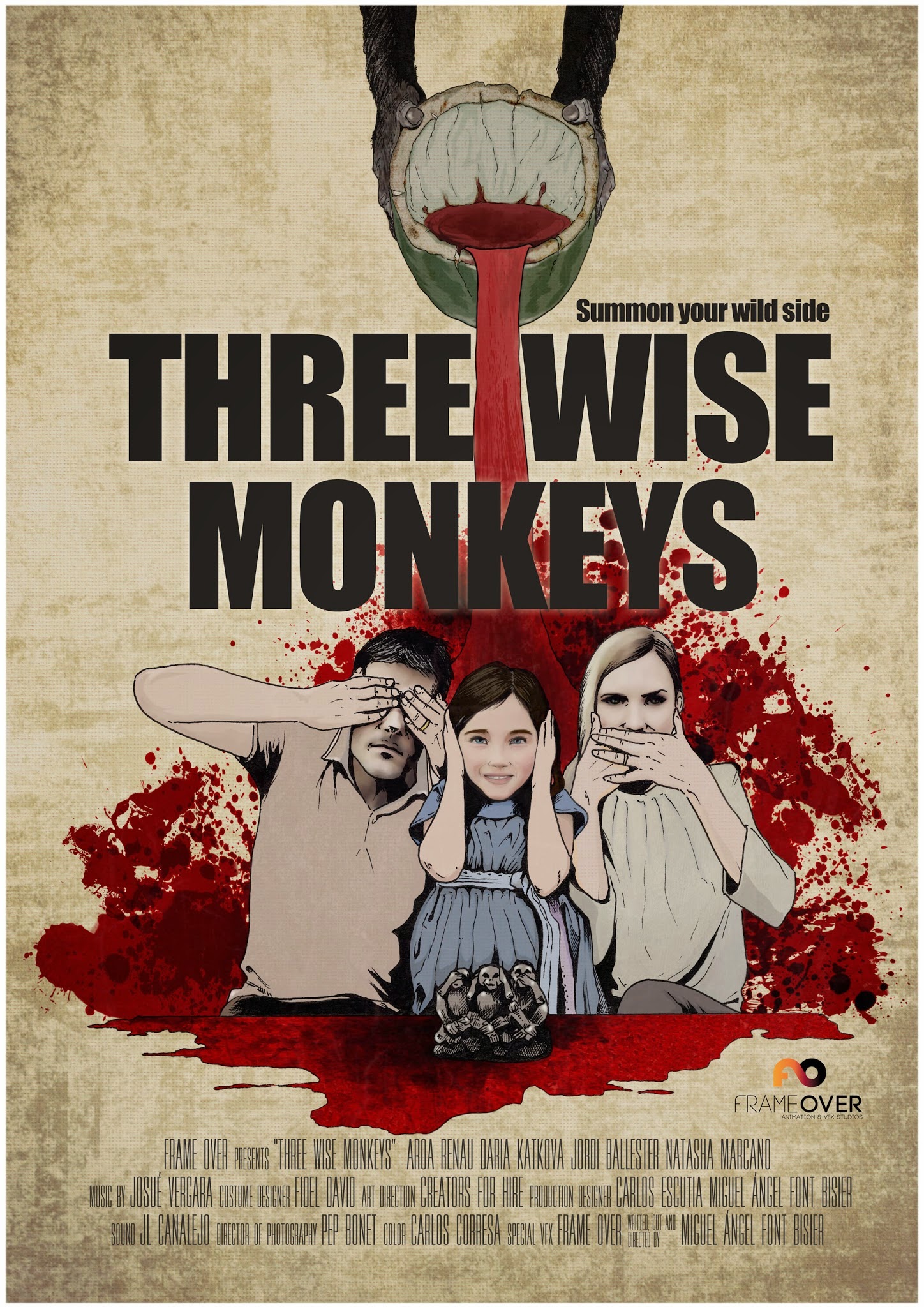
Three Wise Monkeys review
148 "See no evil." Thilo Hilberer You've probably heard of the proverb "see no evil." But few know the origin of this principle, or why it's also associated with monkeys? Although the English.

Three Wise Monkeys Wallpapers Wallpaper Cave
The three wise monkeys represent the moral message of not looking at, listening to, or saying anything evil, as well as to be morally upright in the face of any evil. However, the proverb is sometimes used sarcastically to those who turn a blind eye to something morally or legally wrong.

Three Wise Monkeys Wallpapers Wallpaper Cave
The legend of the three wise monkeys has its origin in Chinese mythology. It tells a striking story starring three curious characters. The protagonists are Kikazaru, the monkey that doesn't hear, Iwazaru, the monkey that doesn't speak and Mizaru, the monkey that doesn't see.

Three Wise Monkeys Wallpapers Wallpaper Cave
Gandhi's Three Monkeys is a series of sculptures created in 2008 by Indian artist Subodh Gupta that portrays three heads in different types of military headgear. The sculptures recall a visual metaphor from India's famous champion of peace, Mahatma Gandhi, of the "Three wise monkeys", representing the principle "see no evil, hear no evil, speak no evil".

Body language Covering the eyes, ears and mouth
December 18, 2023 The Three Wise Monkeys. This iconic trio, each covering their eyes, ears, and mouth, is not just a familiar sight in art but a vessel of profound wisdom, encapsulating an ancient maxim: " See no evil, hear no evil, speak no evil ." This seemingly simple phrase belies a depth of understanding about human nature.
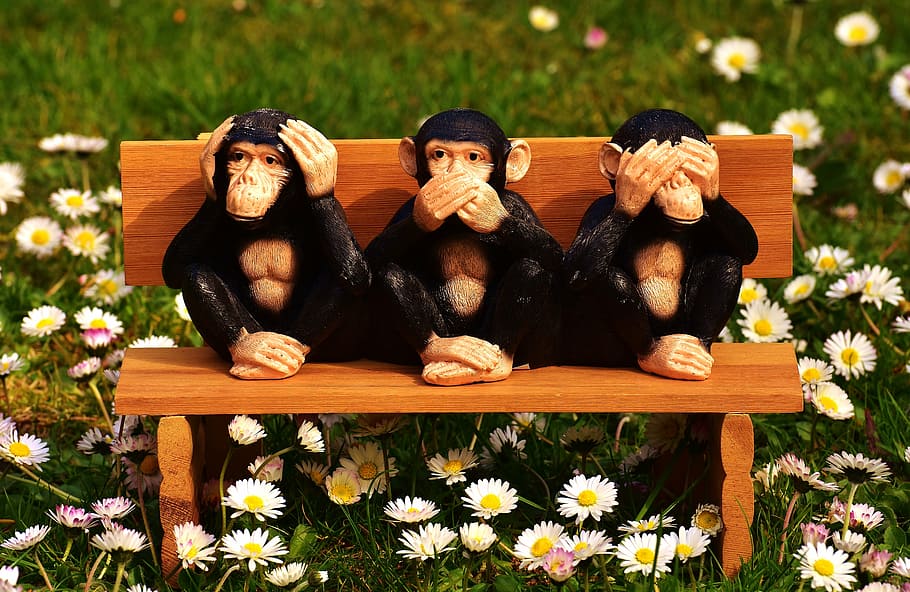
3 Wise Monkeys Wallpaper carrotapp
A World War II poster directed at participants in the Manhattan Project. The apes are widely known as the "see no evil, hear no evil, speak no evil," but in reality, the monkeys have names. The one covering its ears is named Kikazaru; Iwazaru covers his mouth; and Mizaru covers his eyes.

Three Wise Monkeys Herend Canada
4 minutes. The three wise monkeys metaphor comes from a pictorial maxim by Confucius that encourages one's refusal to see, hear, or talk about evil things. This would guarantee happiness in life. Most people have seen the three wise monkeys before. It's usually the image of three monkeys: one covering its mouth, one covering its ears, and the.

Three Wise Monkeys Hear, See, Speak on Behance
The three monkeys in the story behind the famous proverb are Mizaru, Kikazaru, and Iwazaru. In Japanese culture, these monkeys are often called the Three Wise Monkeys or the Three Mystic Apes. The three monkeys, originating from this Buddhist story, teach the importance of having good thoughts, speaking kindly, and doing good deeds.
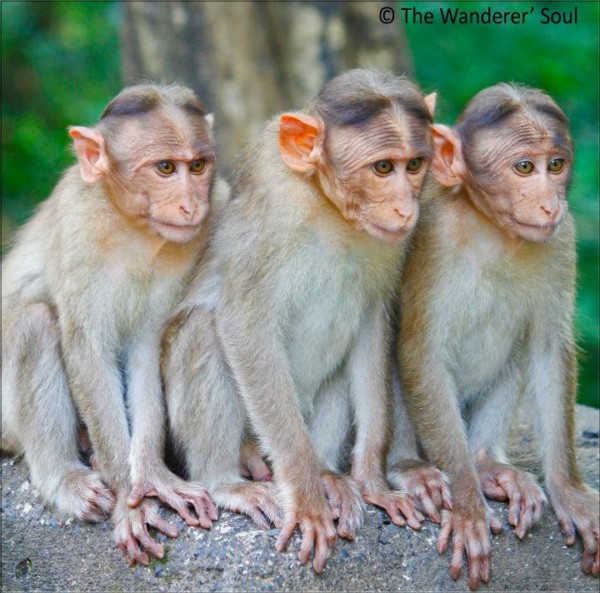
The Three Wise Monkeys iTravel
The 2nd of October is a day to embrace the timeless teachings of Mahatma Gandhi. One of his most famous lessons - 'See No Evil, Hear No Evil, Speak No Evil' - was made popular by the proverbial three monkeys, Bapu, Ketan and Bandar. When we're constantly exposed to evil, we don't realize the damage it does. The purpose of these monkeys is to help us let go of the evil we wish to.

Three Wise Monkeys Bronze Statue Outdoor Bronze
The three wise monkeys are a Japanese pictorial maxim, embodying the proverbial principle " see no evil, hear no evil, speak no evil ". [1] The three monkeys are Mizaru ( 見ざる ), who sees no evil, covering his eyes Kikazaru ( 聞かざる ), who hears no evil, covering his ears Iwazaru ( 言わざる ), who speaks no evil, covering his mouth. [2]
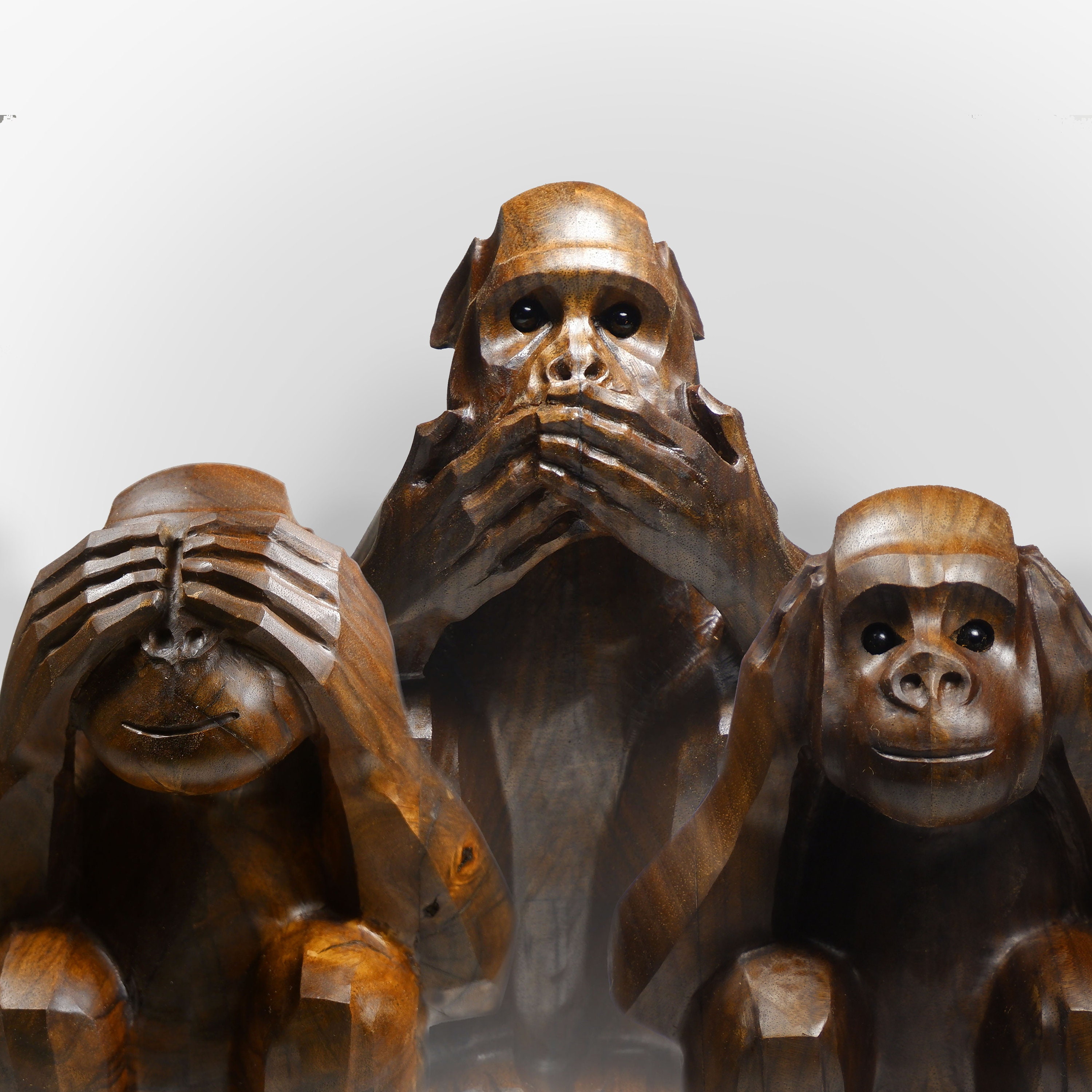
Three wise monkeys. Wooden monkeys lover gift Carved wood Etsy
Origin of Sanzaru/Three Wise Monkeys. Anyway, saru (猿), monkeys. I did a show on monkeys and monkey lore way, way back in episode 4. There I very briefly mentioned the Three Wise Monkeys as they're called in the West, but only briefly.
Three Wise Monkeys 3D Android Apps on Google Play
Beyond its religious origins, Three Kings Day is an exciting cultural celebration that blends the reverence of honoring the Christ child and the joy of the first Christmas. People unite to honor the wise men, also known as magi, and their journey. Families will engage in various customs that make this day truly unique, such as exchanging gifts and savoring special foods.

The Three Wise Monkeys by Jeet Gian (English) Paperback Book Free
4 minutes You've probably seen the famous image of the three wise monkeys. But did you know the real meaning behind it? The classic story of the three wise monkeys from the Tōshō-gū shrine has a simple, timeless lesson: we have be careful what we say, hear, and see. This famous shrine is in Japan.

"Three Wise Monkeys" Posters by Trish Woodford Redbubble
1. The three wise monkeys. Each of the three wise monkeys has their own identity: Kikazaru (the monkey who does not hear), Iwazaru (the monkey who does not speak) and Mizaru (the monkey who does not see). All of them They were sent by the gods as observers and messengers between the world of the gods and the human world.
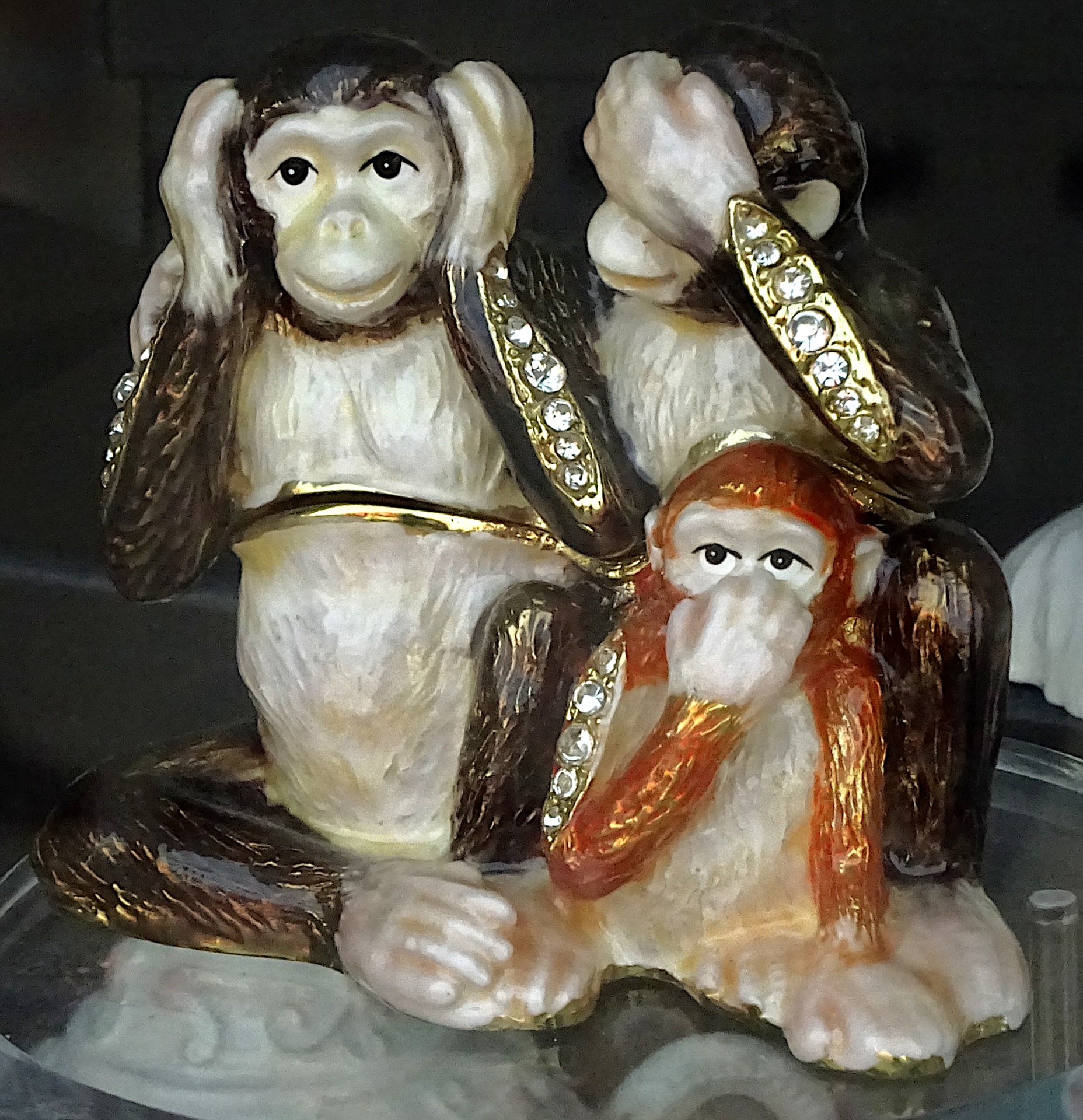
Three Wise Monkeys Free Stock Photo Public Domain Pictures
The three monkeys are Mizaru, covering his eyes, who sees no evil; Kikazaru, covering his ears, who hears no evil; and Iwazaru, covering his mouth, who speaks no evil. Lafcadio Hearn refers to them as the three mystic apes in his Glimpses of unfamiliar Japan (volume 2, page 127).
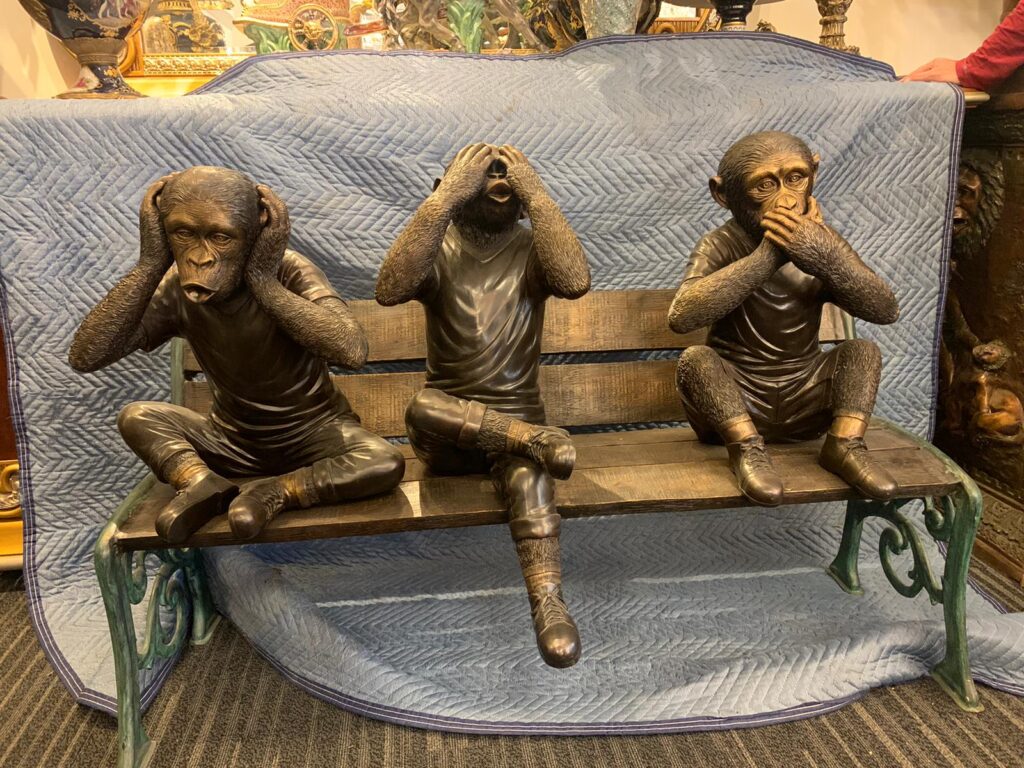
Three wise monkeys on bench large bronze statue bronze Size 52" x 32
Getty Image The Three Wise Monkeys: Hear No Evil, Speak No Evil, See No Evil: The three wise monkeys, often depicted as adorable figures covering their eyes, ears, and mouth, represent three.